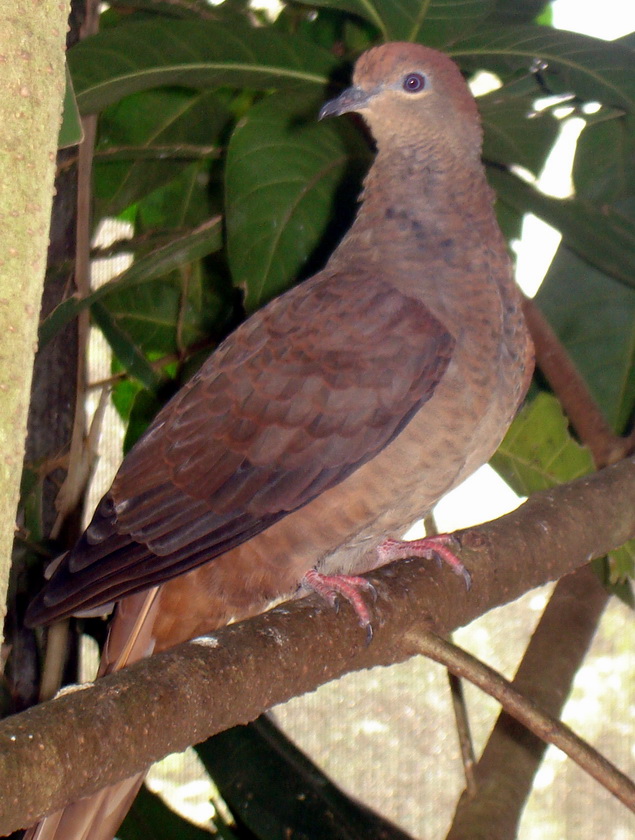|
| Query: Macropygia amboinensis phasianella | Result: 1st of 2 | |
Brown Cuckoo-dove (Macropygia phasianella) - Wiki
| Subject: | Brown Cuckoo-dove (Macropygia phasianella) - Wiki
| |

| Resolution: 635x840
File Size: 202967 Bytes
Date: 2006:03:19 01:54:26
Camera: DSC-S60 (SONY)
F number: f/2.8
Exposure: 10/500 sec
Focal Length: 180/10
Upload Date: 2007:10:29 14:25:06
|
Brown Cuckoo-dove
From Wikipedia, the free encyclopedia
Order: Columbiformes
Family: Columbidae
Synonyms: Macropygia amboinensis, Macropygia amboinensis phasianella
[Photo] Brown Cuckoo-dove, "Macropygia phasianella". Date 19 March 2006. Photo taken by Frances76 (http://en.wikipedia.org/wiki/User:Frances76). | Permission is granted to copy, distribute and/or modify this document under the terms of the GNU Free Documentation License, Version 1.2 or any later version published by the Free Software Foundation; with no Invariant Sections, no Front-Cover Texts, and no Back-Cover Texts. A copy of the license is included in the section entitled "GNU Free Documentation License". |
The Brown Cuckoo-dove, Macropygia phasianella, is a dove in the genus Macropygia. It is also known by the names of "Brown Pigeon", "Pheasant Pigeon" and "Cockoo Dove". They located in eastern Australia from Weipa and Aurukun in the north to Bega in the south and most inland at Atherton and Toowoomba.
The pigeon is from 40 to 43 centimetres (16 to 17.2 inches) in length. Its feathers are of a rich rusty-brown colour. The male will tend to have a slight rose/green colouration on their necks. It has a very long tail and short wings.
The call of the pigeon is a very loud "whoop-a whoop".
The Brown Cuckoo-dove inhabits rainforest, scrubs and rainforest regrowth areas. Generally, they can be found in open places of low vegetation but can been found in thick rainforests and in the highlands.
The pigeons can often be seen in pairs or groups. Its diet consists of berries from both native plants and introduced weed species. They can be nomadic, depending on the supplies of food and have been seen in Papua New Guinea, Indonesia and Philippines. They tend to fly short distances and low to the ground with great strength.
Breeding occurs in spring and summer. The nest is a flat platform of sticks and vines, either in a fork of a tree or on top of a low tree. One creamy, white egg is laid.
Taxonomic note
Macropygia amboinensis and M. phasianella have been lumped into M. amboinensis following Christidis and Boles (1994).
http://en.wikipedia.org/wiki/Brown_Cuckoo-dove
| The text in this page is based on the copyrighted Wikipedia article shown in above URL. It is used under the GNU Free Documentation License. You may redistribute it, verbatim or modified, providing that you comply with the terms of the GFDL. |
|
 |
 |

|
Macropygia amboinensis phasianella
1/2 |

|
 |
^o^
Animal Pictures Archive for smart phones
^o^
|
|

